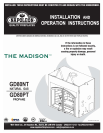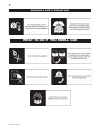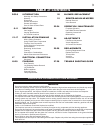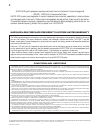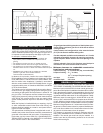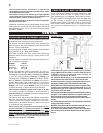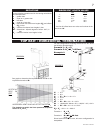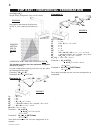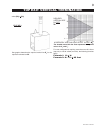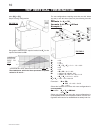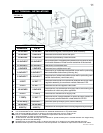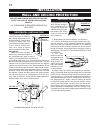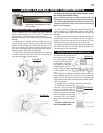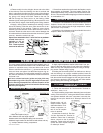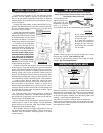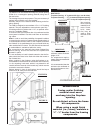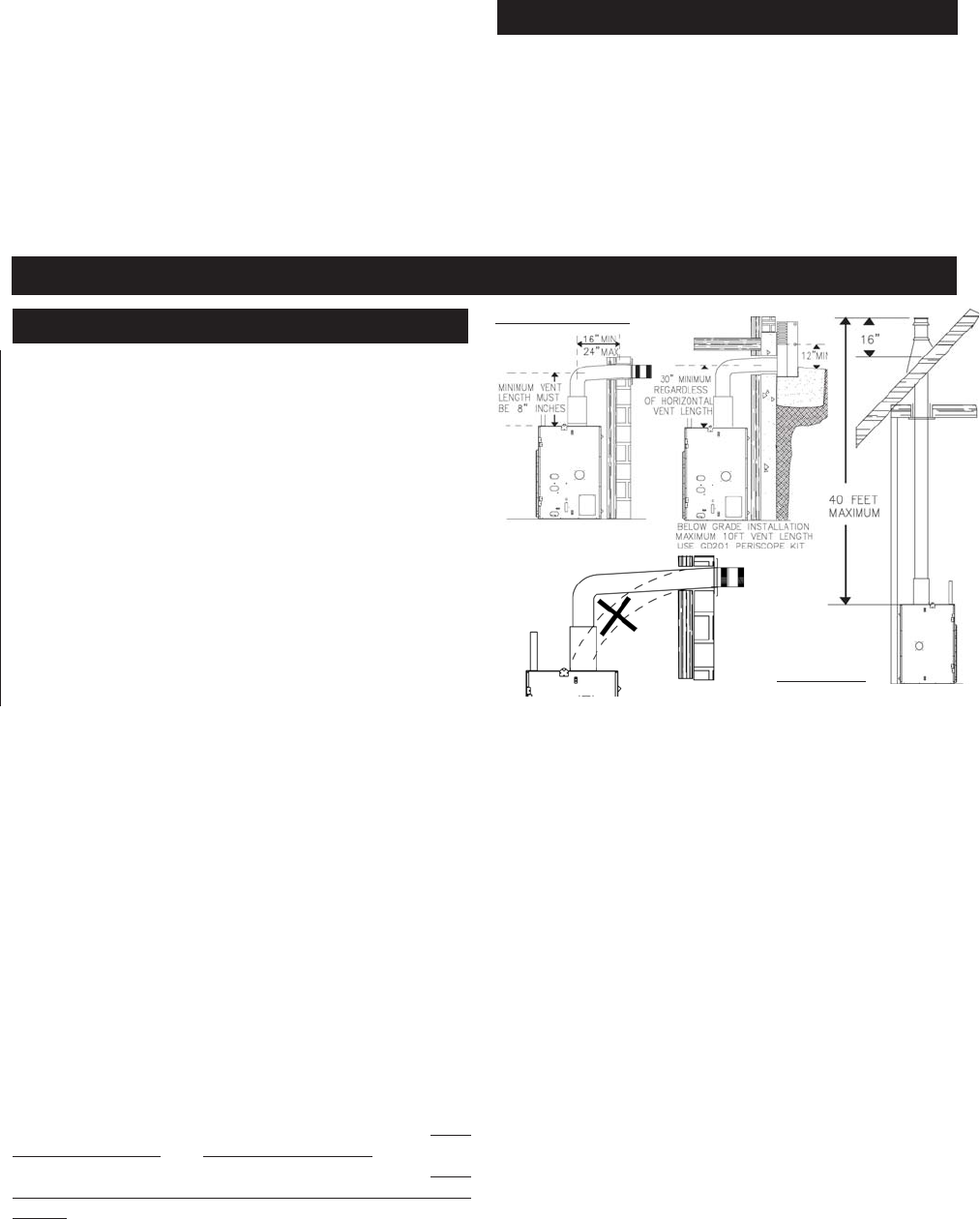
6
W415-0447 / B / 05.24.05
Do not use abrasive cleaners to clean plated parts. Buff
lightly with a clean dry cloth. The glass is 3/16" ceramic
glass available from your Napoleon / Wolf Steel Ltd. dealer.
DO NOT SUBSTITUTE MATERIALS. Clean the glass after
the first 10 hours of operation with a recommended gas
fireplace glass cleaner. Thereafter clean as required. DO
NOT CLEAN GLASS WHEN HOT! If the glass is not kept
clean permanent discolouration and / or blemishes may
result.
This fireplace may
be installed in an aftermarket
permanently located, manufactured (mobile) home, where
not prohibited by local codes.
This fireplace is only for use with the type of gas indicated
on the rating plate. This fireplace is not convertible for use
with other gases, unless a certified kit is used.
No external electricity (110 volts or 24 volts) is required for
the gas system operation.
Expansion / contraction nosies during heating up and cooling
down cycles are normal and are to be expected. Change in
flame appearance from "HI" to "LO" is more evident in natural
gas than in propane.
FIGURES 2A-C
Use only Wolf Steel, Simpson Dura-Vent, Selkirk Direct Temp
or American Metal Amerivent venting components.
For Simpson Dura-Vent, Selkirk Direct Temp and American
Metal Amerivent, follow the installation procedure provided
with the venting components.
All outer pipe joints of these venting systems must be sealed
using Red RTV Hight Temperature Sealant.
Wolf Steel, Simpson Dura-Vent, Selkirk Direct Temp and
American Metal Amerivent venting systems must not be
combined.
A starter adaptor must be used and may be purchased from
the corresponding supplier:
Supplier 5&8 ZC
Duravent W175-0170
Amerivent 4DSC-N2
Direct Temp 5DT-AAN
When using Napoleon venting components, use only ap-
proved Wolf Steel Ltd. rigid / flexible vent components with
the following termination kits: WALL TERMINAL KIT GD422R,
or 1/12 TO 7/12 PITCH ROOF TERMINAL KIT GD410, 8/12
TO 12/12 ROOF TERMINAL KIT GD411, FLAT ROOF TERMI-
NAL KIT GD412 or PERISCOPE KIT GD401 (for wall pen-
etration below grade). With flexible venting, in conjunction
with the various terminations, use either the 5 foot vent kit
GD420 or the 10 foot vent kit GD430. These vent kits allow
for either horizontal or vertical venting of the fireplace.
The maximum allowable vertical vent length is 40 feet.
The maximum number of allowable 5" vent connections is
three horizontally or vertically (excluding the fireplace and
the air terminal connections).
For optimum flame appearance and fireplace performance,
keep the vent length and number of elbows to a minimum.
The air terminal must remain unobstructed at all times.
Examine the air terminal at least once a year to verify that it
is unobstructed and undamaged.
FIGURE 3
CARE OF GLASS, AND PLATED PARTS
When venting, the horizontal run must be kept to a mini-
mum of 16 inches or a maximum of 20 feet. If a 20 foot
horizontal run is required, the fireplace must have a mini-
mum vertical rise immediately off the fireplace of 57
inches. FIGURES 2a-c. When terminating vertically, the
vertical rise is a minimum 34 inches and a maximum 40
feet above the fireplace. FIGURE 3.
VENTING
VENTING LENGTHS & AIR TERMINAL LOCATIONS
Horizontal runs may have a 0 inch rise per foot in all cases
using SIMPSON DURA-VENT or NAPOLEON RIGID OR
FLEXIBLE venting components when venting as
illustrated in Figures 2a, 2b, and 2c.
For optimum performance, it is recommended that all
horizontal runs have a minimum ¼ inch rise per foot.
Provide a means for visually checking the vent connec-
tion to the fireplace after the fireplace is installed.
Do not allow the inside liner to bunch up on horizontal or
vertical runs and elbows. Keep it pulled tight. A 1¼" air
gap between the inner and outer liner all around is
required for safe operation.
Vent lengths that pass through unheated spaces (attics,
garages, crawl space) should be wrapped with a pro-
tective insulation sleeve to minimize condensation.
Use a firestop when penetrating interior walls, floor or
ceiling.
For safe and proper operation of the fireplace follow the
venting instruction exactly.
Deviation from the minimum vertical vent length can cre-
ate difficulty in burner start-up and/or carboning.
If vertical rises greater than 57 inches are necessary,
the increased rise must be deducted from the horizon-
tal run.



